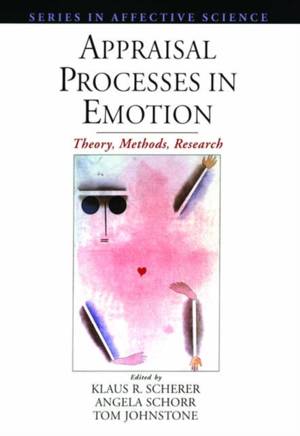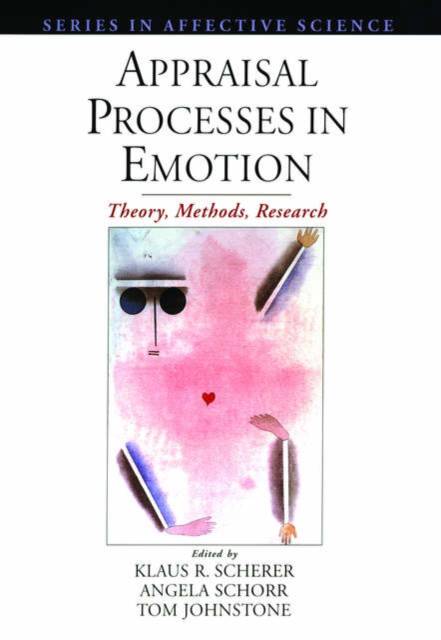
- Retrait gratuit dans votre magasin Club
- 7.000.000 titres dans notre catalogue
- Payer en toute sécurité
- Toujours un magasin près de chez vous
- Retrait gratuit dans votre magasin Club
- 7.000.0000 titres dans notre catalogue
- Payer en toute sécurité
- Toujours un magasin près de chez vous
330,95 €
+ 661 points
Description
The scientific study of emotion has long been dominated by theories emphasizing the subjective experience of emotions and their accompanying expressive and physiological responses. The processes by which different emotions are elicited has received less attention, the implicit assumption being that certain emotions arise automatically in response to certain types of events or situations. Such an assumption is incompatible with data showing that similar situations can provoke a range of emotions in different individuals, or even the same individual at different times. Appraisal theory, first suggested by Magda Arnold and Richard Lazarus, was formulated to address this shortcoming in our understanding of emotion. The central tenet of appraisal theory is that emotions are elicited according to an individual's subjective interpretation or evaluation of important events or situations. Appraisal research focuses on identifying the evaluative dimensions or criteria that predict which emotion will be elicited in an individual, as well as linking the appraisal process with the production of emotional responses. This book represents the first full-scale summary of the current state of appraisal research. Separate sections cover the history of apraisal theory and its fundamental ideas, the views of some of the major theorists currently active in the field, theoretical and methodological problems with the appraisal approach including suggestions for their resolution, social, cultural and individual differences and the application of appraisal theory to understanding and treating emotional pathology, and the methodology used in appraisal research including measuring and analyzing self-report, physiological, facial, and vocal indicators of appraisal, and simulating appraisal processes via computational models. Intended for advanced students and researchers in emotion psychology, it provides an authoritative assessment and critique of the current state of the art in appraisal research.
Spécifications
Parties prenantes
- Editeur:
Contenu
- Nombre de pages :
- 496
- Langue:
- Anglais
- Collection :
Caractéristiques
- EAN:
- 9780195130072
- Date de parution :
- 03-05-01
- Format:
- Livre relié
- Format numérique:
- Genaaid
- Dimensions :
- 165 mm x 234 mm
- Poids :
- 879 g

Les avis
Nous publions uniquement les avis qui respectent les conditions requises. Consultez nos conditions pour les avis.





